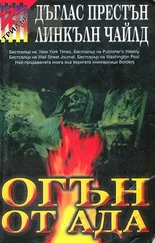“Guilt about Ellerby’s death?”
“No, something she did long before that. It’s been her companion a long time — and it’s growing more acute.”
Pendergast took a long, thoughtful sip. “Very interesting, Constance.”
She hesitated. “There’s one other thing.”
He put down the snifter.
“She has a book, very much thumbed, that she keeps with her almost constantly. Naturally, it became an object of my interest. I took the opportunity to examine it.”
Pendergast leaned forward. “And?”
“It was a copy of Spoon River Anthology .”
“Edgar Lee Masters?” Pendergast sat back, visibly deflated.
“Not exactly Ezra Pound’s Cantos , I know. But poetry can be loved for its sentiment rather than its quality.”
Pendergast waved a hand, conceding the point.
“In any case,” Constance went on, “it was the inscription on the flyleaf that I thought might interest you. It’s not taken from the book itself. It reads: ‘From Z.Q. to A.R. To me, you’ll always be “that great social nomad who prowls on the confines of a docile, frightened order.” Berry Patch, 4/22/72.’”
Pendergast asked Constance to repeat the inscription again.
“And the author of that quotation?” Pendergast asked. “I’m not familiar with it.”
“I googled it and came upon the French philosopher Michel Foucault. But it’s been altered. The original quotation in full is: The lyricism of marginality may find inspiration in the image of the outlaw, the great social nomad, who prowls on the confines of a docile, frightened order. ”
Pendergast pulled the bottle of calvados toward him and began turning it slowly, round and round, lost in thought. At last, he said: “What do you think it means?”
“That this A.R. is an outlaw — and a successful one.”
He put down the bottle. “And who is ‘A.R.’?”
Constance gave a small, gentle laugh. “I would wager she is A.R. To this Z.Q., anyway.”
Pendergast withdrew his fingers from the bottle. “I would agree. Also that she is the outlaw.”
“An admirable outlaw — at least to Z.Q.”
“Indeed. And now let me tell you something of interest. You mentioned before that you could find no trace of her existence before 1972. That intrigued me. I took a turn around the FBI’s most excellent databases and discovered that Felicity Winthrop Frost died in 1956.”
Constance raised an eyebrow.
“She died at twelve and was buried in a cemetery in a place called Puyallup, a suburb of Seattle.”
“How very strange,” Constance said. “What does it mean?”
“Quite simply, our proprietress stole somebody else’s identity. In the days before the Social Security Administration computerized their records and cross-referenced them with deaths, it was not difficult. You found a dead person of about your age, got his or her social security number, and obtained a driver’s license in that name. With those, you could claim to have lost your birth certificate and get a replacement copy. The birth certificate would get you a passport, bank account, any official documents you wanted.”
“And that’s why I could find nothing about her prior to 1972.”
“Precisely. She assumed her new identity in that year, the same year she received the book. Perhaps it was a parting gift as she went off into the world as a different person.” He paused. “Excellent work, Constance. I congratulate you.”
“You made the most important contribution yourself.”
“You trimmed the tree — I merely mounted the star.”
“I’m still not sure how this information advances your case.”
“Information is like electricity; it powers the light that allows us to see our way forward.”
“Who said that?” Constance asked.
“I did.”
Constance finished her cognac, set down the snifter, pushed back her chair, and stood up. “If you don’t mind, then, I’ll go spend an hour or so in my claw-footed bathtub.”
Pendergast rose and — wordlessly — drew her to him, kissing her good night. As their lips parted, she hesitated a moment, then leaned in again, her arms encircling his neck. Their lips met once more — longer, this time. Then Pendergast — ever so gently — withdrew from the embrace. Constance unwound her arms from him and took a step away.
“So,” she said, her voice lower and huskier than usual. “It’s as I thought.”
“My dearest Constance—” Pendergast began again, but she stilled him by pressing a fingertip to his lips.
“Please, Aloysius. Say no more.” Then she smiled faintly, drew a few stray mahogany hairs away from her eyes with the same fingertip, and left through the French doors.
Sitting down again, Pendergast’s gaze returned to the middle distance of the veranda. For five minutes, then ten, he remained motionless. And then, with a troubled sigh, he pulled his cell phone from his jacket, activated an internet browser, and began searching.
Forty-five minutes later, Agent Coldmoon emerged onto the veranda via the same door through which Constance had exited. He stepped out and glanced around at the evening vista. “Nice. Very nice. How come you’ve got a balcony and I don’t?”
“You used to,” Pendergast replied. “I’m afraid your addiction to burnt, boiled coffee cost you your balcony privileges. Please — have a seat.”
Coldmoon settled into one of the uncomfortable iron chairs. At least the view was pleasing and the night breeze was, for a change, dry and refreshing. He noticed the bottle of calvados, saw one glass was empty.
“Do you mind?” he said, even as he poured himself a large measure.
“Not at all, as long as you appreciate that snifter now contains about forty dollars’ worth of fine calvados, and not peppermint schnapps.”
Coldmoon laughed. “What’s up?” he asked, taking a swig.
“I wanted to give you notice that we’re leaving shortly.”
“Oh?” Coldmoon had never tasted calvados before, and he liked how the faint taste of apple softened the bite of the brandy. “Did you solve the case while sitting out here?”
“We are taking up another avenue of investigation. We’re flying to Portland.”
Coldmoon almost coughed up his drink. “Portland? As in Oregon?”
“That is correct. We need to leave within the hour, if we’re to make a connection in Atlanta for the last flight of the night.”
“But — but that’s on the West Coast!”
“Your knowledge of geography overwhelms me.”
Before Coldmoon could reply, Pendergast continued. “I can imagine the protests you’re likely to make. Let me assure you I wouldn’t suggest this trip if I didn’t think it absolutely necessary. We’ll only be gone one day.”
“What about the investigation here?” Coldmoon said. “We’re at a critical point. And that son of a bitch Drayton? He’s already raising hell about our failure to apprehend a suspect.”
“He will say what he will say.”
“And what about the vampire ?” Coldmoon asked with a hint of malice. “What the hell are we to gain from the trip? What’s the purpose?”
“We’ve reached a point in the case where I believe we must go backward in time before we can move forward.”
“You’re talking in riddles again,” said Coldmoon, draining his brandy. “We’re equal partners now — remember?”
Pendergast leaned forward. “Here is why we must make this journey, partner .” He went on to speak in a low voice, in short sentences. Coldmoon, listening, swore first in Lakota, then in English — and then remained quiet until Pendergast sat back once again.
“Okay, Kemosabe,” he said after a silence, rolling his eyes. “That’s some crazy shit. But I’ve been with you long enough not to dismiss it out of hand. I’ll ride shotgun with you. On two conditions. First: if there’s any blowback from this little field trip, you’ll take one for the team.”
Читать дальше
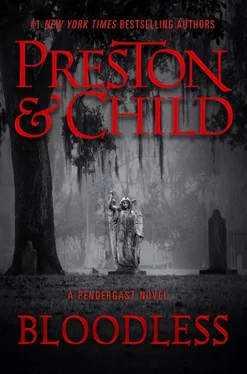
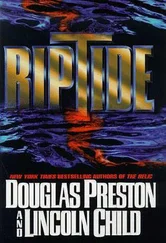
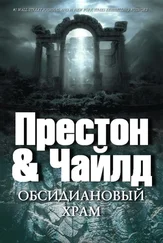
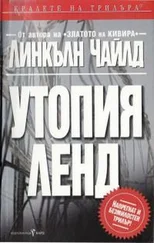
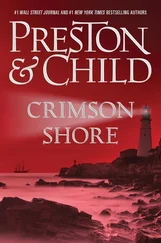
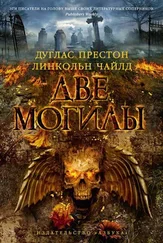
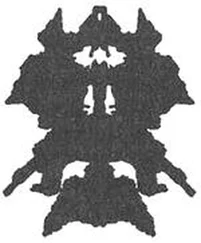
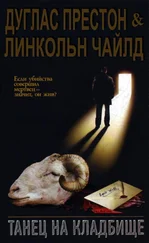
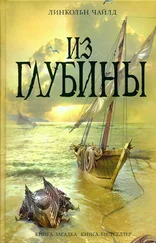
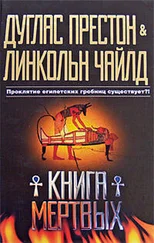
![Линкольн Чайлд - Стихи для мертвецов [litres]](/books/396536/linkoln-chajld-stihi-dlya-mertvecov-litres-thumb.webp)
